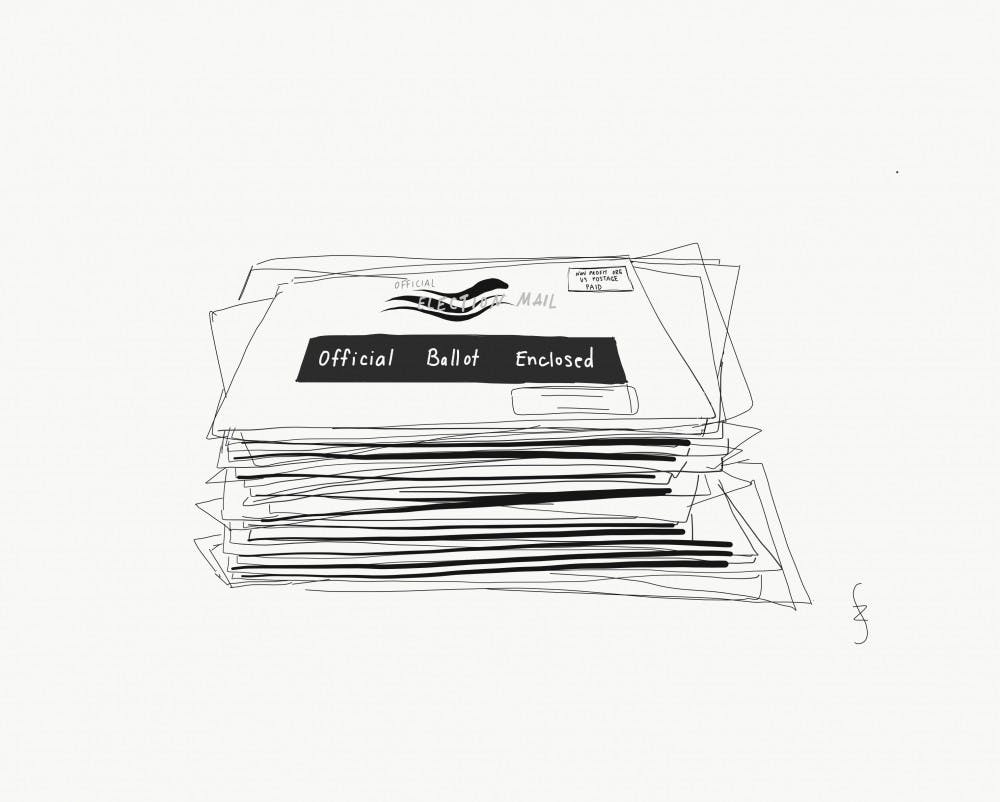The Rhode Island Board of Elections is expecting an overwhelming number of emergency mail ballots — maybe more than it can handle — during the next general election.
Since 2011, the number of emergency mail ballots has increased dramatically due to changes in state law that made them easier to obtain. Previous laws had stricter requirements for receiving the ballots, which can be mailed or dropped off at a board of canvasser’s location as late as 4 p.m. on election day. Now, all voters unable to get to the polls can receive these ballots as long as they place them in certification envelopes signed by two witnesses or a notary.
From 2008 to 2016, the state has seen the number of emergency mail ballots double, with an especially steep uptick in the last few years. If this trend continues without a modification to the current law, the BOE estimates that it will receive well over 38,000 emergency mail ballots in the last 20 days of the 2020 election.
Although the BOE welcomes the voter participation, “We’re predicting that if the process doesn’t change prior to the 2020 presidential election … (it will be) a major hurdle in getting results as (quickly) as possible just because of the processing time involved,” said Robert Rapoza, executive director for the BOE.
Despite the increased use of mail ballots throughout the state, some areas have seen more utilization than others, said John Marion, executive director for Common Cause Rhode Island. Marion said that more affluent parts of the state have advertised the ease of using mail ballots as a form of early voting, causing towns like Westerly and Central Falls to see especially high emergency ballot use.
To counter the flood of emergency mail ballots, the BOE has proposed a bill that would provide every city and town in the state with additional voting machines and electronic polling books. This would allow voters to fill out a ballot and put it into a voting machine prior to election day, which would decrease the workload associated with receiving a high volume of ballots last minute.
While the increased use of emergency mail ballots has left some municipalities and voters confused about the difference between early voting and emergency ballot use, Rapoza asserted that the BOE’s proposal “is not early voting.”
The BOE’s bill, which has been filed in the R.I. House and Senate, “is a process change,” he said, adding that “it’s an improvement in the efficiency of the process.”
But Marion said that the BOE’s bill would be early voting in every sense but name. “We think the fact that it’s not labeled as (early voting) actually confuses voters and leads some voters to believe that Rhode Island doesn’t have early voting, so they (will not) take advantage of that system,” Marion said.
A separate bill, proposed by R.I. Secretary of State Nellie Gorbea, directly addresses in-person early voting, The Herald previously reported.
“We think the Secretary’s bill provides the same administrative relief … but has the added benefit of being better for voters,” Marion said. “We wish (the BEO) had tried harder to work with the secretary’s office to come to a common solution.”
On March 21, the Senate held the BOE’s bill for further consideration.





